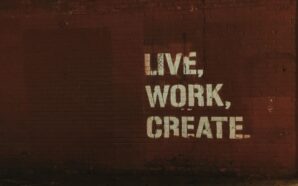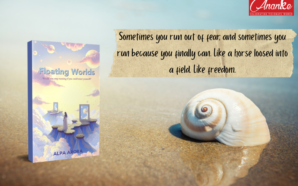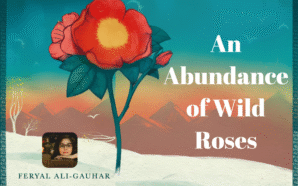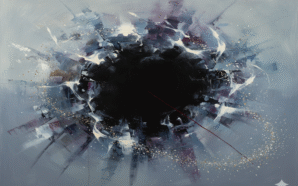Republished | This excerpt was originally published in Ananke’s 10th anniversary special edition on ISSUU and can be viewed here.
2 a.m. I close the window. Shut out the night. Look away from the dark. There’s more in this room. It’s hard to decide which terror is more beautiful, which beauty more frightful. The night inside my mind or the one outside. One is malleable, whatever exists there can fall, dissolve, subject to my will, and that’s alright because there’s no threat. Nebulous, intangible, without a fraction of importance, a random conclave inside my head, who would care what happens there, what glory, what creation, what destruction. While there’s concrete in the standing strength we call real, certainty in the night where we lean our bodily weight outside these windows, quiet at this hour, these trees, these gardens. This window itself, the buildings we build into the sky. Doesn’t matter how precarious, doesn’t matter that we’ve seen them crumble quicker than an atom of thought. To live in a time when one half of the world is tilted, sliding into extinction, disappearance. To move in and out of this reality. Somewhere at this time, night is not a luxury. There is a place far away and not too far, where night is the only light there is. A reddened black. The mind implodes upon itself. That’s how incomprehension works. But only for a while. When it wakes, it begins to move of its own accord, fired by a mechanism following instructions from a dream. It’ll never sleep again.
The night hangs still. Stillness is my illusion. I’m still here, the way I was last year, asking the same questions. Who will speak for them? Who speaks, who speaks at all?
We write the way we live, and we write the way we speak and don’t speak. Words gather up behind my tongue, a dark river, coiled, seeking a different outlet on my body. Language, I’m not familiar with the way others do it. Their scrabble of words, wires meshed in their own grey static, accents clicked by teeth. This, I won’t call this English. This is not my language. I don’t have a language, the ones that could’ve been mine hang in thin air, strands wraithing through my grasp. I come to this language loaded with landscape. There will be air among sentences. Trees standing between words. Frequent silences because I’m looking around from side to side, testing the earth beneath this punctuation.
4 a.m. I’m not the only one awake. Roads never rest. But there’s no comfort in the thought.
I close my eyes to their ghostly company. Far away, the grey haze of cars rushing, scratching up and down the night. They never stop. Sleepless wayfarers. The loneliness in that word, a cold white ache in my teeth. Go home. Please. Let there be a home.
Positions don’t change. Still watching that construction site, still there, two streets ahead of me. Work takes time. Paused in construction. Poised in creation. If only building something didn’t take this long. I wish those rooms would fill. I wish the gaping black would disappear. I have a choice to look away, but I don’t. Those looming rooms, those hollowed spaces, a home for the invisible. Us, in process, gravity in context. Gravity one day doing what it’s already doing, swinging back against the great backdrop. How many times do we remember the sky is behind us, how many times do we realize we’re standing while we’re falling. Falling back into the sky. Invariably falling. This is gravity too, my voice this strange wild organ, this strange tender organ moving out of me, my lungs, my heart being pulled, sending something out, a letter soft as flesh drifting on the night. With water, so much water. All this emission. Writing is a form of dying too. There will be a time for poetry again. But not tonight. Not tonight.
About Taiba Abbas
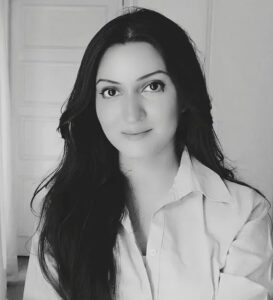 Taiba Abbas is an author, publisher, and academic. Born in Pakistan, and raised in Italy, she holds a Master’s degree in Comparative Literature from SOAS, University of London. Her books include The Night In Her Hair (2022), and Who Will Speak For The Men Of Gaza? (2024). This piece is an exclusive extract from her upcoming work.
Taiba Abbas is an author, publisher, and academic. Born in Pakistan, and raised in Italy, she holds a Master’s degree in Comparative Literature from SOAS, University of London. Her books include The Night In Her Hair (2022), and Who Will Speak For The Men Of Gaza? (2024). This piece is an exclusive extract from her upcoming work.
Image by Gordon Johnson fromPixabay (Inspiration Van Gogh’s Starry Night)








